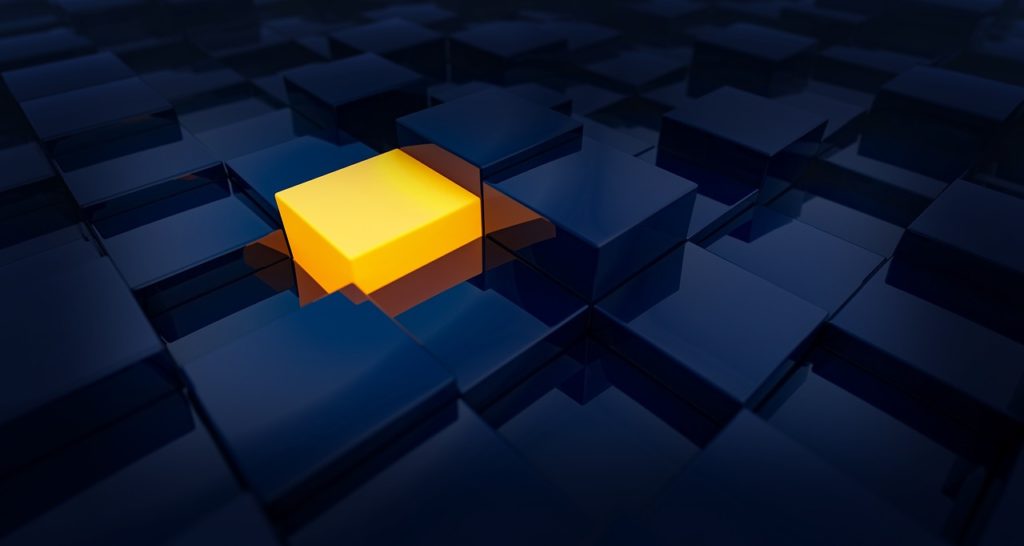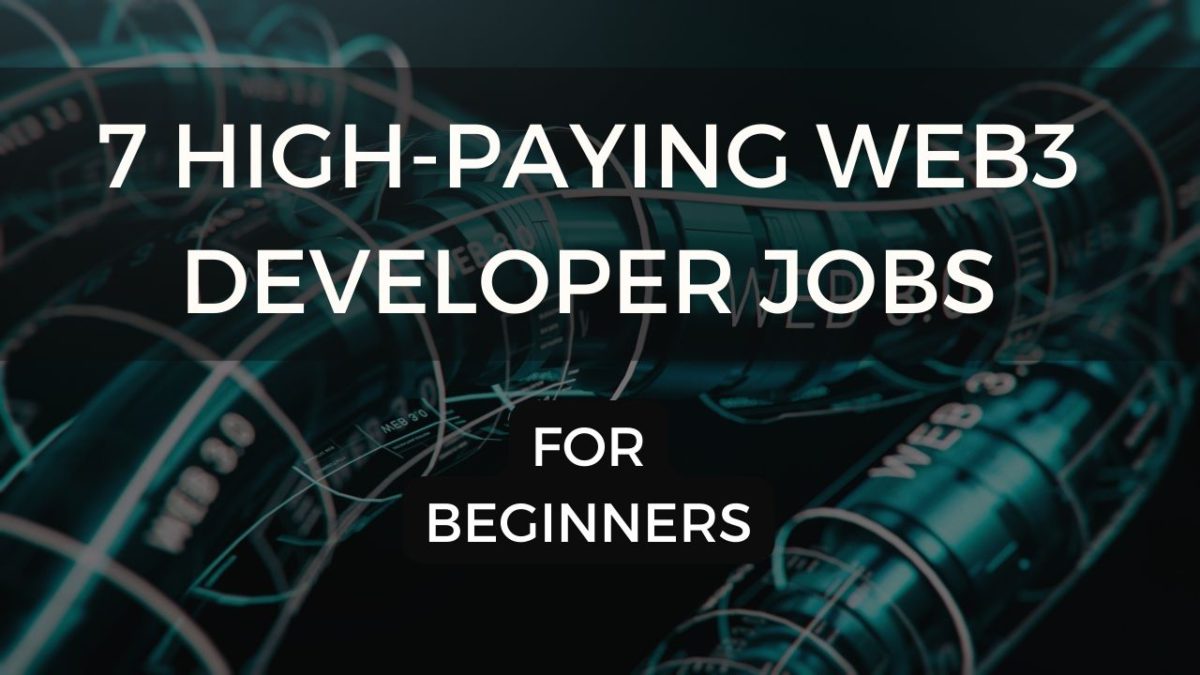Is Blockchain Developer a Good Career? Exploring Opportunities and Challenges in 2024
So, you’re thinking about diving into the world of blockchain development, huh? It’s a field that’s been buzzing with excitement and for good reason. The allure of working with cutting-edge tech and the prospect of a solid paycheck are just a couple of reasons people are flocking to this career. But like any job, it’s got its ups and downs. Let’s break down what makes being a blockchain developer in 2024 a potentially great career choice.
Key Takeaways
- Blockchain development is in high demand across various industries, offering numerous job opportunities.
- Salaries for blockchain developers are competitive, often higher than many other tech roles.
- Remote work is a common option, allowing for flexibility and a better work-life balance.
- The field requires continuous learning to keep up with rapid technological changes.
- Despite challenges, the career offers a chance to work on innovative projects with real-world impact.
Understanding the Role of a Blockchain Developer
Key Responsibilities and Tasks
Blockchain developers are the architects of decentralized systems. They design and implement the infrastructure that allows blockchain networks to function seamlessly. Here are some key responsibilities:
- Smart Contract Development: Writing, testing, and deploying smart contracts, which are self-executing contracts with the terms of the agreement directly written into code.
- Blockchain Architecture Design: Crafting the overall structure of blockchain systems, ensuring they are scalable, secure, and efficient.
- Integration and Maintenance: Ensuring that blockchain solutions integrate smoothly with existing systems and maintaining them to adapt to new requirements.
Blockchain developers are at the forefront of a technological revolution, creating systems that challenge traditional methods of data storage and transaction processing.
Essential Skills and Knowledge
To thrive as a blockchain developer, a mix of technical and soft skills is necessary:
- Programming Proficiency: Knowledge of languages like Solidity, JavaScript, and Python is crucial. Understanding these languages helps in developing robust blockchain applications.
- Understanding of Blockchain Platforms: Familiarity with platforms such as Ethereum, Hyperledger, and Corda is essential.
- Cryptography: A solid grasp of cryptographic principles is vital for ensuring the security and integrity of blockchain networks.
- Problem-Solving Skills: Analytical thinking is needed to build secure and efficient systems.
- Team Collaboration: Working effectively with other developers and stakeholders is key in this multifaceted environment.
Career Pathways and Progression
The career path for a blockchain developer is diverse and promising. Here are some avenues they might explore:
- Smart Contract Developer: Specialize in creating and managing smart contracts.
- Blockchain Solution Architect: Focus on designing comprehensive blockchain solutions for various industries.
- DApp Developer: Develop decentralized applications that leverage blockchain technology.
- Cryptocurrency Developer: Work on the development and optimization of digital currencies.
- Blockchain Consultant: Provide strategic advice to businesses on how to utilize blockchain technology effectively.
The role of a blockchain developer is not just about coding; it’s about pioneering new ways to solve problems and improve systems. For those with the curiosity and drive, mastering essential skills like programming and cryptography opens doors to exciting opportunities in this field.
Opportunities in Blockchain Development
High Demand Across Industries
Blockchain technology is not just about cryptocurrencies anymore. It’s making waves in industries like finance, healthcare, supply chain, and even gaming. With its ability to offer secure and transparent solutions, more sectors are looking to integrate blockchain into their systems. This means a surge in demand for blockchain developers, especially those skilled in creating crypto banking software and white-label NFT marketplaces. As the technology continues to evolve, the need for developers who can innovate and adapt will only grow.
Lucrative Salary Packages
If you’re in tech for the money, blockchain development might just be your golden ticket. Salaries for blockchain developers are among the highest in the tech industry. Entry-level positions can start at $75,000, while experienced developers can earn upwards of $200,000 annually. This high earning potential is due to the specialized skills required and the current shortage of qualified professionals. Companies are willing to pay top dollar to secure talent that can help them stay ahead in this competitive field.
Remote and Freelance Work Options
One of the coolest perks of being a blockchain developer is the flexibility. Many companies are open to remote work, allowing developers to work from anywhere in the world. This global demand means you can take on international projects, expanding your portfolio and experience. Plus, if you prefer the freelance route, there are plenty of opportunities to work on a project basis, often with attractive hourly rates. This flexibility not only offers a better work-life balance but also the chance to explore diverse projects and industries.
Challenges Faced by Blockchain Developers
Technological Hurdles and Solutions
Blockchain technology is constantly evolving, and with that comes a unique set of challenges. One of the biggest hurdles is scalability. As blockchain networks grow, handling a high volume of transactions without slowing down becomes tricky. Developers need to come up with creative solutions to ensure that the network remains efficient even under heavy loads. Another challenge is interoperability, which involves making different blockchain networks work together seamlessly. This is crucial for the technology’s widespread adoption. Lastly, the energy consumption of blockchain networks, particularly those using proof-of-work, is a significant concern. Developers are tasked with finding ways to reduce this environmental impact while maintaining security and efficiency.
Regulatory and Compliance Issues
Navigating the regulatory landscape of blockchain can feel like walking through a minefield. Regulations vary widely from one region to another, creating a complex environment for developers to operate in. Compliance with these laws is essential, yet it can stifle innovation as developers often have to tread carefully to avoid legal pitfalls. This uncertainty can deter investment and slow down the adoption of blockchain technologies. Developers must stay informed about regulatory changes and adapt quickly to ensure their projects remain viable.
Keeping Up with Rapid Advancements
The fast-paced nature of blockchain technology means that developers must be on their toes. New tools, protocols, and platforms are constantly emerging, and staying updated is a full-time job. Continuous learning is a must, whether through reading industry publications, attending conferences, or engaging with online communities. This can be exhausting, but it’s also what makes the field exciting. Developers who embrace this challenge can find themselves at the forefront of technological innovation, working on projects that could shape the future.
Blockchain technology continues to evolve and face real-world challenges, indicating that its development and potential for mass adoption are ongoing. Blockchain technology continues to evolve and face real-world challenges, indicating that its development and potential for mass adoption are ongoing.
Skills Required for Success in Blockchain Development
Proficiency in Blockchain Platforms
To really make it in blockchain development, you’ve got to know your platforms. We’re talking Ethereum, Hyperledger, and the like. Each of these has its own quirks and strengths, so picking the right one for your project is a big deal. It’s not just about knowing they exist; you need to understand what makes them tick and how they fit into different scenarios. Being able to develop blockchain applications means you can adapt and choose the best tools for the job.
Mastery of Smart Contracts and Solidity
Smart contracts are the backbone of blockchain. They’re these nifty bits of code that automatically do stuff when certain conditions are met. Solidity is the go-to language for writing these contracts, especially on Ethereum. If you’re serious about blockchain, getting the hang of Solidity is non-negotiable. Without it, you’re missing out on a huge part of what makes blockchain so revolutionary.
Understanding of Cryptography
At the heart of blockchain’s security is cryptography. It’s what keeps everything safe and sound. You need to know your way around hash functions and public-key cryptography to build systems that people can trust. Cryptography isn’t just a feature; it’s the glue that holds the whole thing together, ensuring data integrity and secure transactions.
Blockchain development is like being on the frontier of technology. It’s where new ideas are tested, and the landscape is always changing. To thrive, you need to be adaptable and ready to learn as you go. It’s not just about having skills now but being prepared to evolve with the field.
The Future of Blockchain Development as a Career
Emerging Trends and Innovations
Blockchain technology is moving fast, with new trends and innovations popping up all the time. Developers are at the heart of this evolution, driving changes that could reshape industries. Expect to see more focus on scalability and interoperability, making blockchain systems faster and more versatile. Decentralized finance (DeFi) and non-fungible tokens (NFTs) continue to grow, offering developers fresh opportunities to innovate and create impactful applications.
Long-term Career Prospects
The future looks bright for those in blockchain development. As more sectors realize the potential of blockchain, the demand for skilled developers will keep rising. Industries like finance, healthcare, and logistics are already investing heavily in blockchain solutions. This trend suggests that blockchain developers will enjoy stable and rewarding careers for years to come. The need to cultivate the right skills and adapt to new technologies will be crucial as the field evolves.
Impact on Various Sectors
Blockchain’s influence is spreading across multiple sectors, not just in finance. In healthcare, it’s enhancing patient data security and management. Supply chains are becoming more transparent and efficient thanks to blockchain’s traceability features. Even in entertainment and gaming, blockchain is enabling new forms of digital ownership and monetization. For developers, this means a chance to work on diverse projects that have real-world impact.
Blockchain development is more than just a job; it’s a chance to be part of something transformative. As the technology embeds itself deeper into our daily lives, developers will play a key role in shaping its path forward. This career path isn’t just about coding; it’s about crafting the future of digital interactions.
Why Blockchain Development is a Promising Career Choice
Working with Cutting-edge Technology
Blockchain is at the forefront of tech innovation. As a developer, you’re not just coding; you’re part of a movement that’s changing how data is handled. This field lets you work on cool projects that push boundaries. Imagine creating systems that enhance transparency or secure transactions in ways that were impossible before. It’s a playground for those who love to innovate and stay ahead of the curve.
Contributing to Real-world Innovations
Being a blockchain developer means you get to see your work in action. Blockchain isn’t just for cryptocurrencies anymore. It’s making waves in healthcare, finance, and even supply chains. Your skills can help improve how these industries operate. This career is about more than just writing code—it’s about making a real impact.
Job Security and Growth Potential
The demand for blockchain developers is on the rise. Companies across various sectors are eager to hire skilled professionals, offering competitive salaries and flexible work options, including remote work. This high demand ensures job security and provides opportunities for career growth. As blockchain technology continues to evolve, the need for developers will only increase, making this a stable and promising career path.
Choosing a career in blockchain development isn’t just about the technology—it’s about being part of a transformative wave that’s reshaping industries and creating new opportunities. For those ready to embrace the challenge, the rewards are substantial.
Conclusion
So, is becoming a blockchain developer a good career choice in 2024? Well, it sure seems like it. The field is buzzing with opportunities, and the demand for skilled developers is through the roof. With high salaries and the chance to work on cutting-edge technology, it’s a pretty sweet deal. But, like any career, it comes with its challenges. Keeping up with the fast-paced changes and navigating the regulatory landscape can be tricky. Still, if you’re up for the challenge and have a knack for tech, blockchain development could be your ticket to a rewarding career. Just remember, it’s not just about the money—it’s about being part of something that’s shaping the future. So, if you’re curious and ready to dive in, this might just be the path for you.
Frequently Asked Questions
What does a blockchain developer do?
A blockchain developer creates and maintains systems that use blockchain technology. They work on building secure digital transactions and developing smart contracts.
Why is blockchain development a good career choice?
Blockchain development is a promising career because it involves working with cutting-edge technology, offers high salary potential, and provides opportunities for innovation.
What skills are needed to become a blockchain developer?
To become a blockchain developer, you need skills in programming, understanding of blockchain platforms, smart contracts, and cryptography.
What are the challenges faced by blockchain developers?
Blockchain developers face challenges like keeping up with rapid technological changes, dealing with regulatory issues, and solving complex technological problems.
What industries hire blockchain developers?
Industries like finance, healthcare, supply chain, and technology hire blockchain developers to improve security and transparency in their operations.
Can blockchain developers work remotely?
Yes, many blockchain developers have the option to work remotely, allowing them to collaborate with global teams and work on international projects.
Stay informed with daily updates from Blockchain Magazine on Google News. Click here to follow us and mark as favorite: [Blockchain Magazine on Google News].
Get Blockchain Insights In Inbox
Stay ahead of the curve with expert analysis and market updates.
latest from tech
Disclaimer: Any post shared by a third-party agency are sponsored and Blockchain Magazine has no views on any such posts. The views and opinions expressed in this post are those of the clients and do not necessarily reflect the official policy or position of Blockchain Magazine. The information provided in this post is for informational purposes only and should not be considered as financial, investment, or professional advice. Blockchain Magazine does not endorse or promote any specific products, services, or companies mentioned in this posts. Readers are encouraged to conduct their own research and consult with a qualified professional before making any financial decisions.

 Bitcoin
Bitcoin  Ethereum
Ethereum  Tether
Tether  XRP
XRP  Solana
Solana  Dogecoin
Dogecoin  USDC
USDC  Lido Staked Ether
Lido Staked Ether  Cardano
Cardano  TRON
TRON  Avalanche
Avalanche  Chainlink
Chainlink  Toncoin
Toncoin  Wrapped stETH
Wrapped stETH  Shiba Inu
Shiba Inu  Sui
Sui  Wrapped Bitcoin
Wrapped Bitcoin  Hedera
Hedera  Stellar
Stellar  Polkadot
Polkadot  WETH
WETH  Hyperliquid
Hyperliquid  Bitcoin Cash
Bitcoin Cash  LEO Token
LEO Token  Uniswap
Uniswap  Litecoin
Litecoin  Pepe
Pepe  Wrapped eETH
Wrapped eETH  NEAR Protocol
NEAR Protocol  Ethena USDe
Ethena USDe  Aave
Aave  Aptos
Aptos  USDS
USDS  Internet Computer
Internet Computer  POL (ex-MATIC)
POL (ex-MATIC)  Cronos
Cronos  Mantle
Mantle  Ethereum Classic
Ethereum Classic  Render
Render  Bittensor
Bittensor  Monero
Monero  MANTRA
MANTRA  WhiteBIT Coin
WhiteBIT Coin  Artificial Superintelligence Alliance
Artificial Superintelligence Alliance  Dai
Dai  Arbitrum
Arbitrum  Filecoin
Filecoin 





